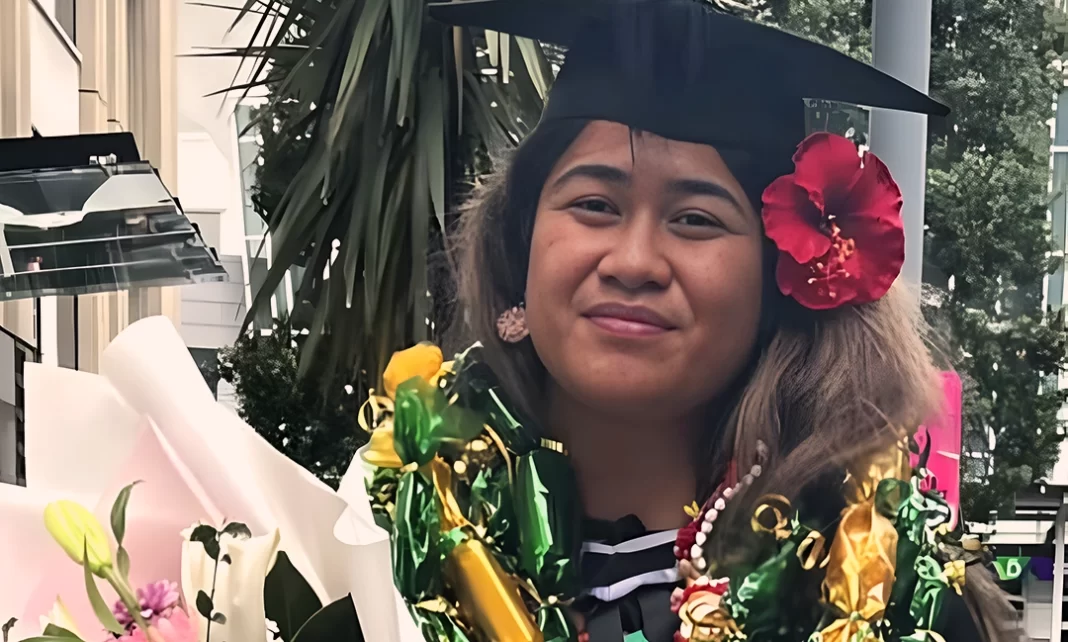An academic’s research that explores emotional experience through a New Zealand-born Sāmoan lens, has been published in the Australian and New Zealand Journal of Public Health.
New research by Waipapa Taumata Rau, University of Auckland Masters of Public Health graduate Leueta Mulipola (Vailu’utai, Fasito’otai, Salua Manono) explores how New Zealand-born Sāmoan youth experience and understand anger. It was co-authored by her academic supervisors Social and Community Health Associate Professor Janine Wiles and Pacific Health senior lecturer Dr Fuafiva Fa’alau.
Young people shared experiences of navigating life as part of the Sāmoan diaspora, the dualities of growing up alongside Aotearoa’s mainstream culture, where the raw expression of emotions are often incongruous to Sāmoan culture.
Mulipola said it was during her time as a research assistant transcribing and analysing focus group talanoa, for an earlier study, that she noticed Sāmoan grandparents and parents commonly referencing the anger they observed from young people in their families, without elaborating further.
Embarking on the research also stemmed from seeing Pacific youth in the diaspora explore their emotions and identity through various channels such as short films, documentaries, poetry, podcasts, novels and music etc.
“I could see emotions such as anger and frustration expressed so well in those mediums. But I never really saw a deep understanding of these emotions being fully explored (or if it even existed) in academia, or journal articles. So that inspired my interest to explore anger, against the context of Sāmoan culture and being NZ-born and raised.”
Born in Savai’i and raised in Vailu’utai Upolu, Mulipola moved to New Zealand with her family as a one-year-old, and now calls Māngere (the 275) in South Auckland, her home away from home. As a predominantly Māori and Pacific community, she says Māngere is also a place where diversity is celebrated, and Pacific cultures have a prominent presence.
“That is something that I am both very proud and grateful to have grown up around as it significantly shaped my positionality, referring to the research.
“Growing up as a first-generation child of Sāmoan migrants in Māngere inherently gave me a lens in which I was able to understand duality, diversity and the in-betweenness of growing up in a western society, while my sense of self was still being shaped by the values and principles of the Fa’a Sāmoa – the Sāmoan way of life.”
Mulipola, an advisor with the Ministry of Health, wants to see more equitable support for the health and wellbeing of Pacific peoples, who are less likely to seek out professional health care in times of need. She hopes her research will foster a deeper understanding and respect for Sāmoan emotional experiences, through a lens that centers their worldview.
Pacific New Zealanders have a higher incidence of mental illness and suicidal behaviour than other groups.
“Understanding how communal values and the importance of family play a vital role in the expression and management of emotions, can highlight the necessity of culturally informed approaches in both mental health research and practice,” says Mulipola.
Dr Fa’alau says she first recalls meeting Mulipola as a young student, and having watched her take flight and engage in high-quality research was both exciting and essential.
“Examining anger in research as an emotion among young Sāmoans is long overdue. It was significant to theorise anger as an emotion from the lenses of a young Pacific female researcher.”
Fa’alau says the most significant part of the published research is translating the findings from theory to practice, that will be pertinent and relevant to practitioners and therapists working with Pacific youth and their families, to address issues in mental health and prevention of suicidality.
“Another positive significance of this publication is the opportunity to use the findings to facilitate conversations with Pacific parents and families about youth anger,” says Dr Fa’alau.
Associate Professor Wiles says Mulipola’s outstanding work has important implications for understanding and improving young people’s wellbeing.
“Leueta’s exciting work makes a valuable contribution to thinking about planning effective and culturally relevant healthcare responses, with potential to help create more tailored mental wellbeing assessment tools and supports. This research highlights the value of Pacific-led and Indigenous-led research in these critical areas, and the need for ongoing investment and support of such research.”
Mulipola praised both Dr Fa’alau and Assoc Prof Wiles for their crucial and invaluable support. She acknowledged her parents Mulipola Taupa’u Afano and Dr Ta’avale Ioana Mulipola for instilling the value of education and importance of a strong work ethic, as well as the necessity to make the most of every opportunity.
“I am grateful that my parents and three sisters have been beside me throughout my journey, I am deeply grateful for the teachings from my parents.”
As a young Samoan woman who had been raised in Aotearoa, she hoped that her research, and its publication in a journal, would send a positive message to other Pacific/Sāmoan researchers.
“It is my hope that this research inspires other Pacific researchers to pursue and share their unique perspectives, enriching the field with their valuable insights.”
Media contact Kim Meredith | Pacific media adviser M: 0274 357 591 E: [email protected]






